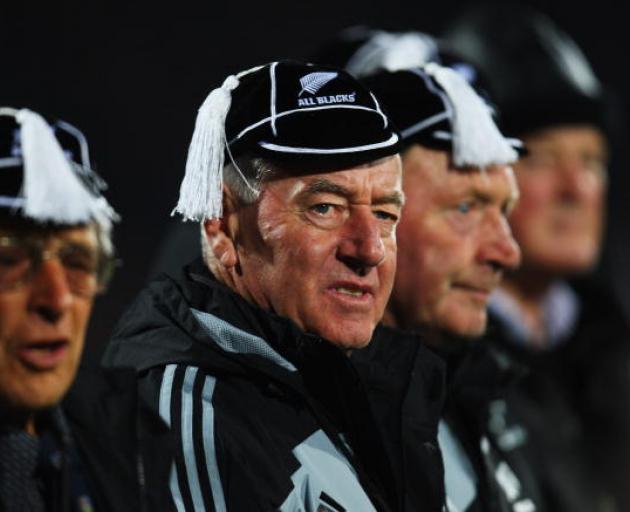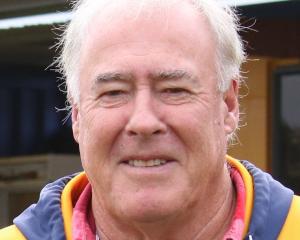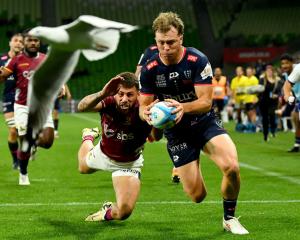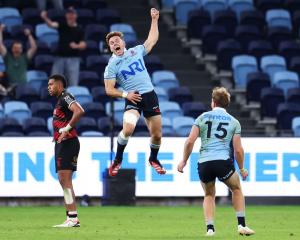
The $387 million deal is still not complete because professional players are yet to agree to it. Mediation is at a stalemate with the two parties said to be way apart on the issue.
Laurie Mains has been playing rugby since he was a child, and went on to play for and coach the All Blacks.
He told Checkpoint he could not fathom why the professional players were not getting in behind a deal that has unanimous support from the grass roots.
"I can't think of why they would want to oppose this, because at the end of the day, my understanding is that the players get a percentage of the gross income from the commercial company," Mains said.
"Silver Lake are going to grow the pie, not diminish it. And I would imagine that they would end up getting a bigger slice of money than they do at present.
"What I don't understand most of all, those people rely on the goodwill of rugby throughout New Zealand, and why they would want to damage the grassroots and the future of the game to this extent, I don't know.
"For me, this opportunity is absolutely essential to New Zealand Rugby. And if we don't take it, we're going to lag behind the rest of the world, because most of the major unions are entering into similar agreements with other major companies, and we would get left behind."
Those opposed to the deal are not acting as guardians of the future of rugby in New Zealand, Mains said.
"There is a separate company that is going to run New Zealand Rugby. That has nothing to do with a commercial company that has been set up to manage this account.
"Secondly, 12.5 percent, two directors on a seven or eight man board. What major influence can they have?
"If someone else comes along in 10 years' time and buys them out, they won't have a greater percentage. They'll still only have 12.5 percent and a minority on the commercial board of New Zealand Rugby. So how could they possibly do damage?
"It's a test for New Zealand Rugby and it's a test for the Players Association board. That's where the issue is. Not necessarily with the professional players around New Zealand."
Mains told Checkpoint he thought the Players Association board might not understand the ramifications to New Zealand grassroots rugby if the deal did not go ahead.
"New Zealand Rugby Union has got some highly skilled business people on that board. The Māori Rugby board are satisfied that it's going to assist with Māori rugby.
"And down through all of the provinces... they all supported it. Certainly I know that club level rugby need the support. Why the Players Association Board want to be at odds with all of those bodies, I cannot understand."
He wanted the professional players opposing the deal to ask themselves where they came from in New Zealand rugby.
"Do we want to do any damage to the grass roots of New Zealand rugby? I'll guarantee there's not one single player in New Zealand that would want to harm or deny opportunity to club rugby and provincial rugby."
Without the Silver Lake deal, rugby in New Zealand would continue to decline, Mains said.
"Because we've come on pretty hard times with Covid-19 and everything else we can't give the support at provincial level and club level and grassroots level that is needed to bring back the momentum of rugby at that level.
"Silver Lake have a number of ideas how they can get into the homes of children and the young players of New Zealand rugby, and make it more entertaining and more acceptable to them.
"This company is very highly skilled and New Zealand Rugby is incredibly fortunate to be in the position where they can cash in on that skill, let alone the bulk input of money. I think everybody understands that we have to get more money and support.
"When I say money, it's a matter of providing personnel to assist those clubs with their operations and to assist with coaching around the provinces.
"It's a really big deal. And if we don't get this through it's going to be very hard for the New Zealand Rugby Union."
Professional players should not have the power to veto the decision that had been supported by the NZ Rugby board and provincial unions, Mains said.
"They should have power to make decisions in areas that directly concern them. I would love to know how they managed to get this sort of power that they can veto something as major as this.
"They've got that veto, they've been given it somewhere along the line, and they need to be mature. They need to be mature and think about the whole of rugby in New Zealand, not just themselves.
"I don't think they should have that veto power."












